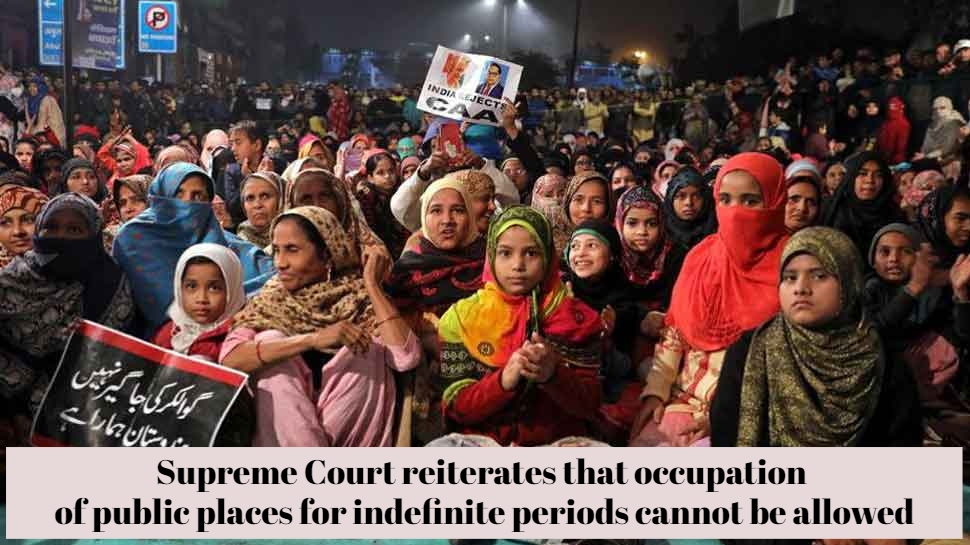

By Sunil Garodia
First publised on 2021-02-14 14:30:29
The Supreme Court has refused to re-examine its verdict in the Shaheen Bagh case where it had held that blocking of public spaces for long periods to hold protests, causing inconvenience to others, cannot be allowed. It has added that the right to protest cannot be anytime and everywhere. The court said "there may be some spontaneous protests but in case of prolonged dissent or protest, there cannot be continued occupation of public place affecting the rights of others".
The right to protest is an integral part of democracy. Any person or group of persons aggrieved by any policy decision of the government can protest in a peaceful manner in the form of their choice. But, as the Supreme Court has said, this right comes with responsibilities. Just like the right to freedom of speech and expression is not absolute, so the right to protest is also not unbridled. To highlight oneâs grievance, one cannot trample upon the rights of others.
It is often seen that the general public suffers a lot when protestors take over public spaces either in the heart of the city, forcing closures of link roads which in turn entails longer commutes, or in other localities where barricading, loudspeakers and constant movement of unwanted elements cause discomfort and fear. Any protest movement that goes on for months, like Shaheen Bagh or the farmer's protests now, cannot be allowed in places where it causes maximum discomfort to the general public.
Although the Supreme Court order is welcome, is it really enforceable? If Covid had not happened, was it possible for the Centre to remove the shamianas at Shaheen Bagh without confrontation with the protestors? Such confrontation could have easily gone out of hand leading to injuries and even deaths. Is it possible for the government to remove the protesting farmers now from Delhi's borders? At another level, if ruling parties in any state allow their constituents to hold protests against the Centre in the heart of the state capitals inconveniencing many, who is going to complain?
The best way to curb this practice of protestors grabbing public spaces is either for the legislature to enact Places for Protest Act where each district will have to specify one or more places where protests could be held (care should be taken that the places selected should cause least inconvenience to others) or, in the absence of that, for the Supreme Court to direct the Centre and the states to immediately specify such spaces in each district. After that, no protest can be held at any other place in that district and any assembly outside the designated places should be immediately dispersed by the local police.











